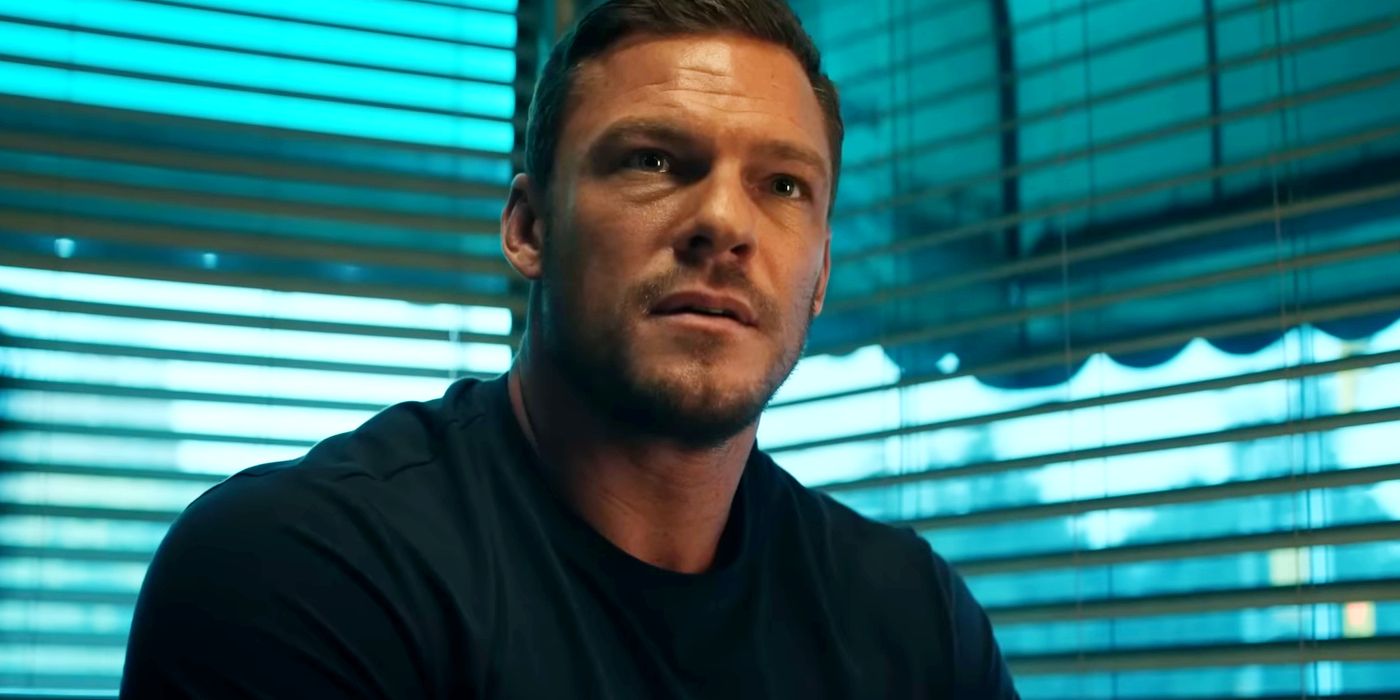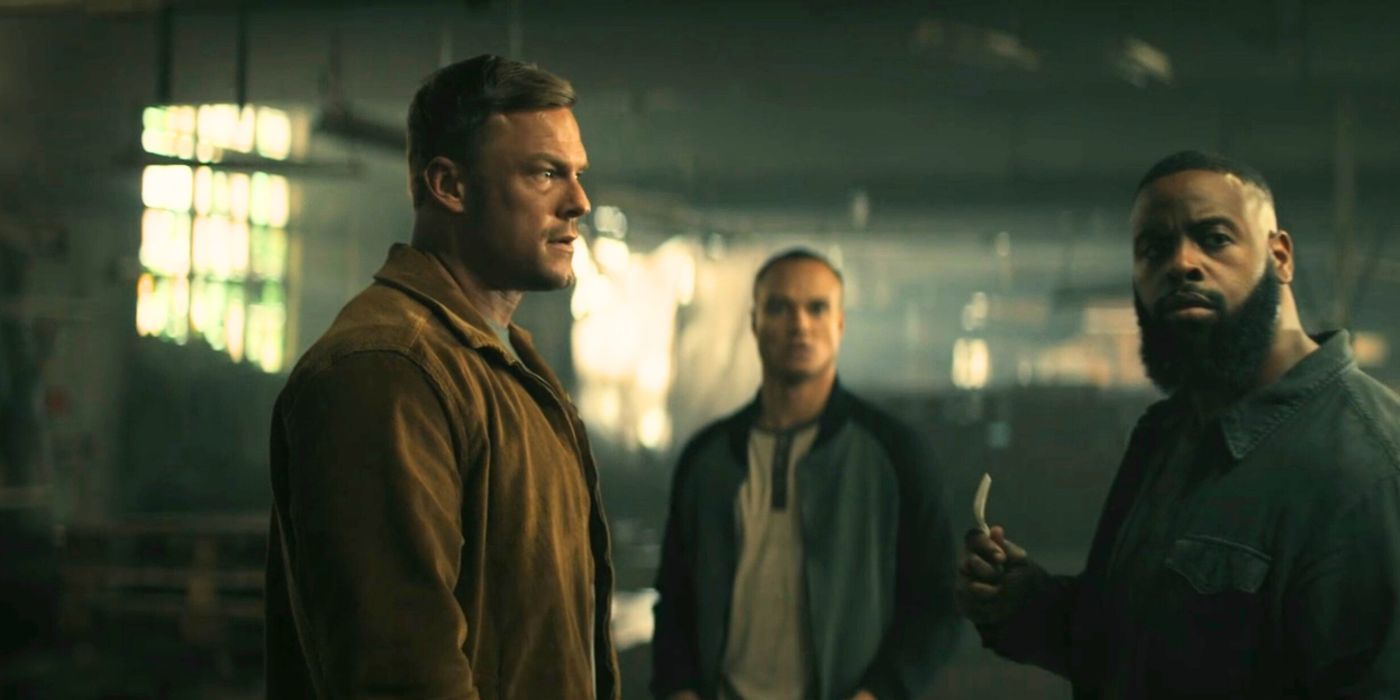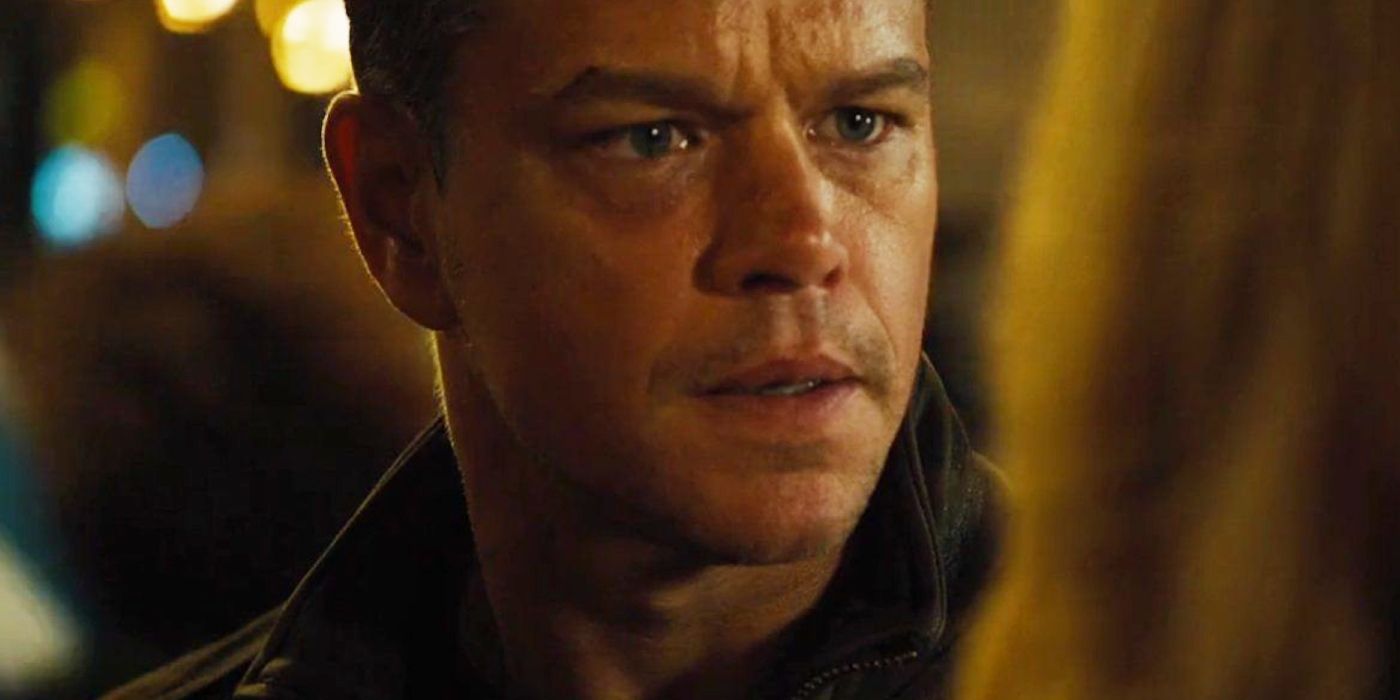Alan Ritchson’s criticisms of James Bond ring more than a little hollow when Reacher season 2 fell victim to the same 007 flaws that he pointed out.
Alan Ritchson’s claims about the James Bond franchise don’t stand up to scrutiny after Reacher season 2 was guilty of many of the same mistakes. The character of James Bond has been through many revisions, but some things remain true in all the suave super-spy’s screen incarnations. Bond is always hyper-competent, he has always got a lot of love interests, and he is always a cold-blooded killer. The same could be said for Jack Reacher, the star of Prime’s Reacher. After Reacher’s season 2 ending, the hero of the adaptation of Lee Childs novel series bears some resemblance to 007.
Admittedly, Alan Ritchson’s Reacher is a military veteran whereas Bond is a working spy, and he is a free agent, whereas Bond is a member of MI6. However, while Reacher season 1’s story leaned into Reacher’s status as a drifter with a heart of gold, season 2 brought him closer to the unstoppable super-spy mold. This wasn’t necessarily a welcome change, although meeting other members of Reacher’s 110th Special Investigations Unit was an interesting addition to the show’s world. These changes still unavoidably make some of Ritchson’s recent James Bond criticisms seem unfair as he critiqued 007’s modus operandi.
Reacher Season 2 Was Far More Predictable Than Season 1
Alan Ritchson’s Complaints About James Bond Echo Reacher Season 2 Criticisms

In an interview with Entertainment Weekly, Ritchson said that he saw Reacher as an American Bond before admitting that he found the James Bond movies “A little misogynistic and predictable.” This claim is a little rich after Reacher season 2 proved much more predictable than its predecessor, with the series never recapturing the simple charms of its debut season. Reacher season 2’s tone suffered due to its location change, with a spy thriller set in New York having none of season 1’s novelty value. Meanwhile, Reacher and Karla Dixon fail to recreate Roscoe and Reacher’s easy chemistry.
What made season 1’s Margrave setting so much fun was the same thing that made Roscoe and Reacher’s relationship work. The title character didn’t seem like he was utterly unstoppable, but instead like he was a random drifter who happened upon a small town conspiracy and felt compelled to do the right thing. Roscoe and Reacher were thrown together by circumstance, whereas Reacher’s season 2 story with the 110th Special Investigations Unit made him the sort of unrelenting superhuman that viewers complain about James Bond being. Bond’s slow slide into self-parody was replicated in Reacher season 2, making Ritchson’s comments ironic.
Reacher’s Female Characters Are Stronger Than James Bond’s (But There’s A Problem)
Reacher’s Love Interests Follow A Misogynistic Trend Of Their Own

Although Roscoe and Reacher’s relationship was strong, this doesn’t mean that Reacher is free from accusations of misogyny. Both of Reacher’s seasons featured solid character development for their respective love interests, but the fact that Reacher never commits to a love interest and instead drops them when each season ends has a misogynistic edge to it. More recent James Bond movies like Casino Royale and No Time To Die saw 007 truly connect with his love interests, breaking the franchise’s toxic pattern in preceding decades. In contrast, Reacher’s disregard for commitment echoes the more cavalier attitude epitomized in earlier James Bond movies.
Alan Ritchson Is Right About One Thing Reacher Does Better Than James Bond
Reacher’s Star Is Right To Note Bond’s Tired Self-Awareness
To be fair to Ritchson, one of his arguments about the James Bond franchise does hold up, and it points to a reason for Reacher’s outsized success. The actor argues that Bond’s awareness of his coolness is unappealing to contemporary audiences, noting that Reacher’s lack of awareness about his hyper-competence is essentially what makes him cool. After over a decade of blockbusters featuring self-aware superheroes and super-spies, this is a fair point. Modern audiences can find a character who is “Not in on how slick he is” refreshing after Iron Man and Deadpool set the stage for countless knock-offs.
Once it became clear that Reacher was a super spy in season 1, it was less believable and more artificial when he adopted a humble attitude throughout the show’s season 2 return.
However, this point also has its flaws. Much like Reacher’s love interest problem only reared its head after the second season began, the character’s return also made his modesty less charming and more jarring. When viewers had no idea that Reacher was basically superhuman, both the character and the audience were equally surprised to see him beating up tough prisoners and mowing down corrupt cops alike. Once it became clear that Reacher was a super spy in season 1, it was less believable and more artificial when he adopted a humble attitude throughout the show’s season 2 return.
Ritchson’s James Bond/Reacher Comparison Already Happened 22 Years Ago
Bourne and Bond’s Rivalry Was Defined Along The Same Lines

While Ritchson isn’t wrong to point out the comparisons between Bond and Reacher, this isn’t the first time that an American spy has challenged the iconic British character’s popularity. Before Jack Reacher was ever brought to life onscreen, Jason Bourne was an earlier spy who threatened to dethrone 007 as the most iconic espionage antihero of all time. Like Reacher, Matt Damon’s amnesiac super spy didn’t view himself as cool or heroic but was hypercompetent, a drifter without a consistent employer, and an unstoppable force when it came to car chases, hand-to-hand combat, and detective skills alike.
This last quality is one thing that separates the two heroes, although Ritchson’s character doesn’t necessarily come out looking better. Reacher has incredible deductive skills, with the character displaying an almost superhuman ability to crack any case as easily as he can crack some skulls. In contrast, Bourne was constantly left on the back foot. His amnesia meant that, although he was an incredibly adept spy, he had no idea who he could trust or how to untangle the knotty conspiracy he was caught in. Ironically, this weakness made Bourne a stronger antihero than Reacher as it humanized him.
The fact that Reacher is both super strong and a super genius is a little too convenient as it means, unlike Bourne, Reacher never seems to be in real peril. This is an issue for James Bond as well since viewers are so used to the character escaping every death trap that it is hard to care about his fate in a given adventure. No Time To Die went to extreme measures to prove that the James Bond franchise’s hero is mortal despite his slickness, but Reacher’s success means the show is unlikely to take the same route any time soon.



